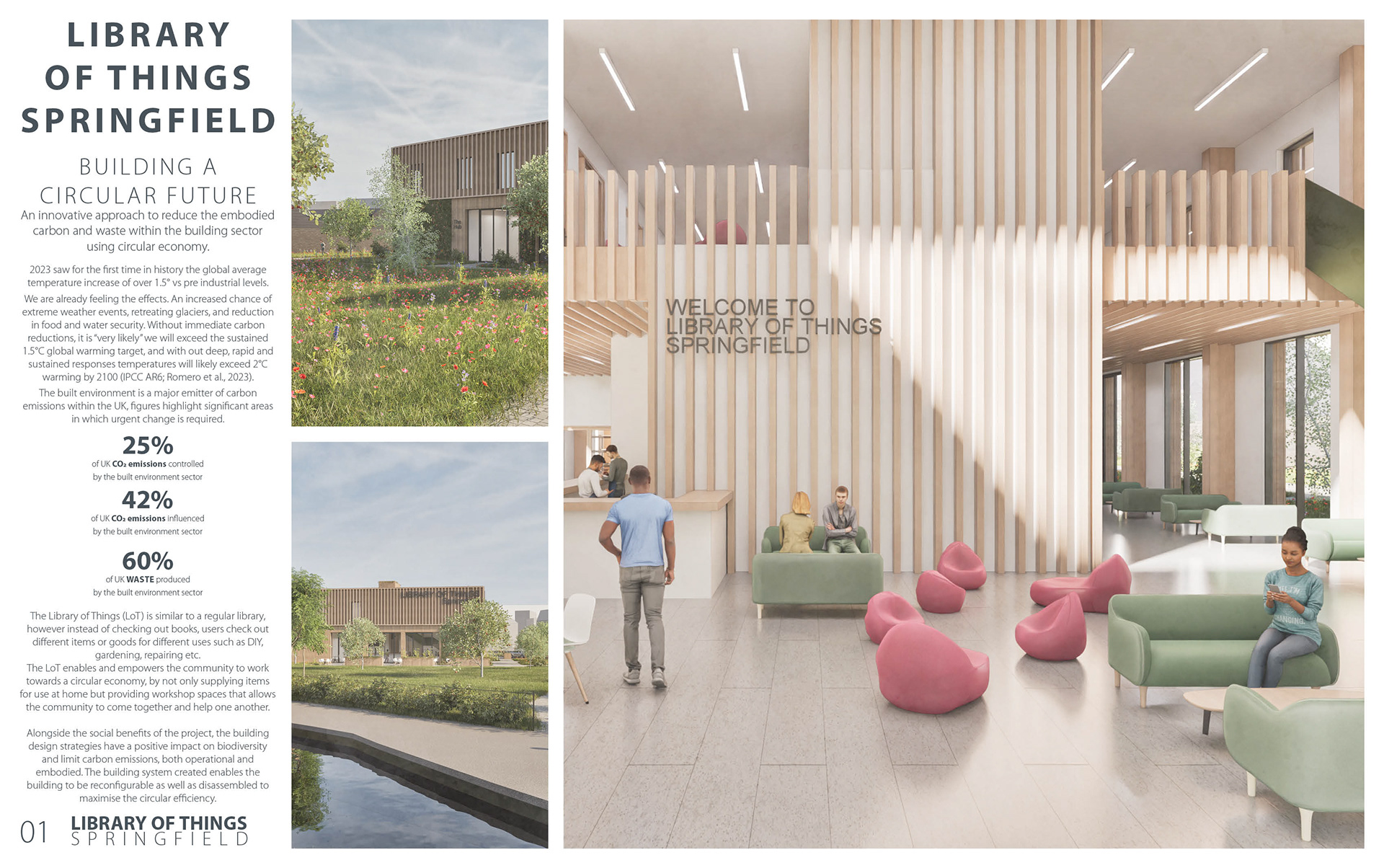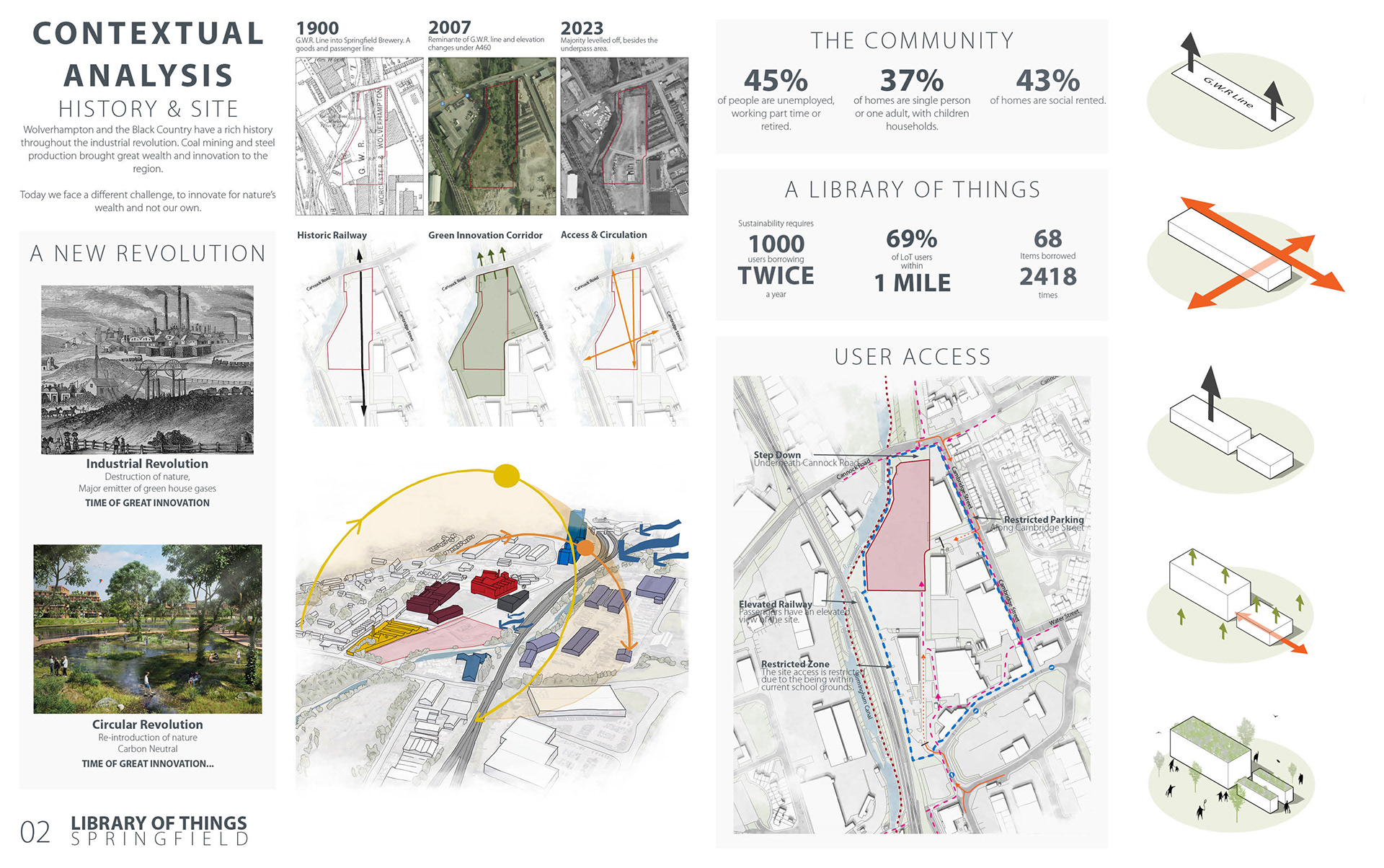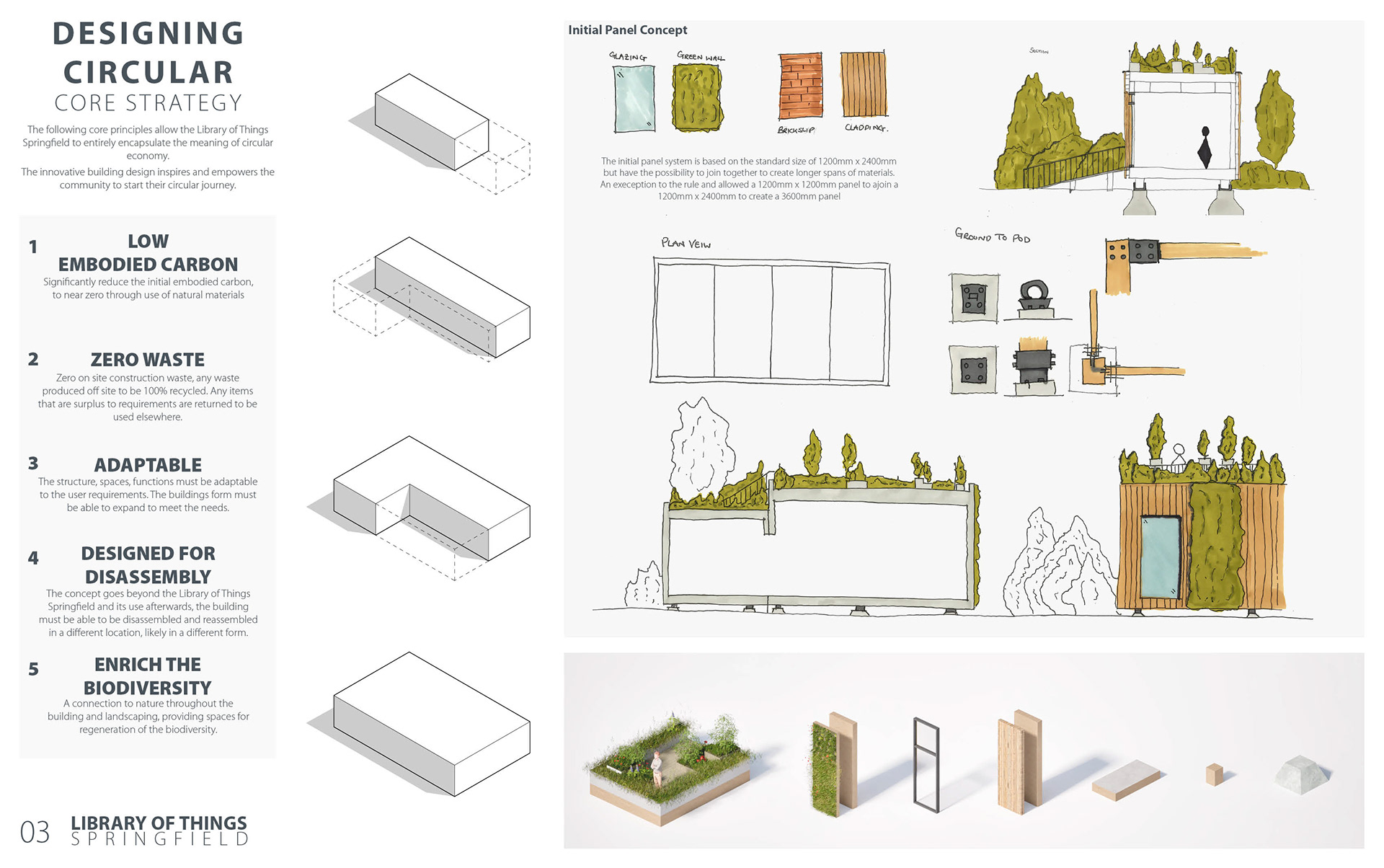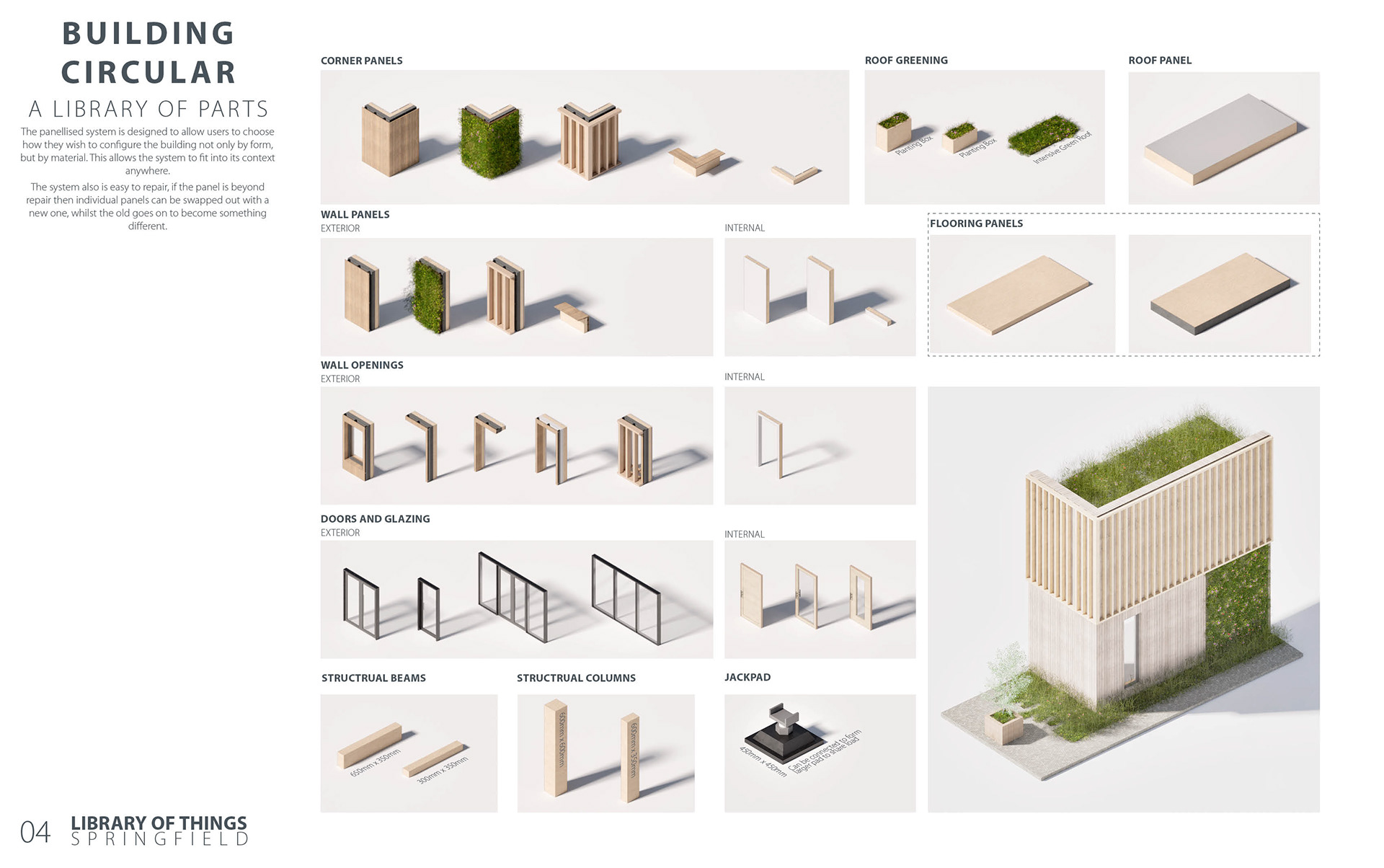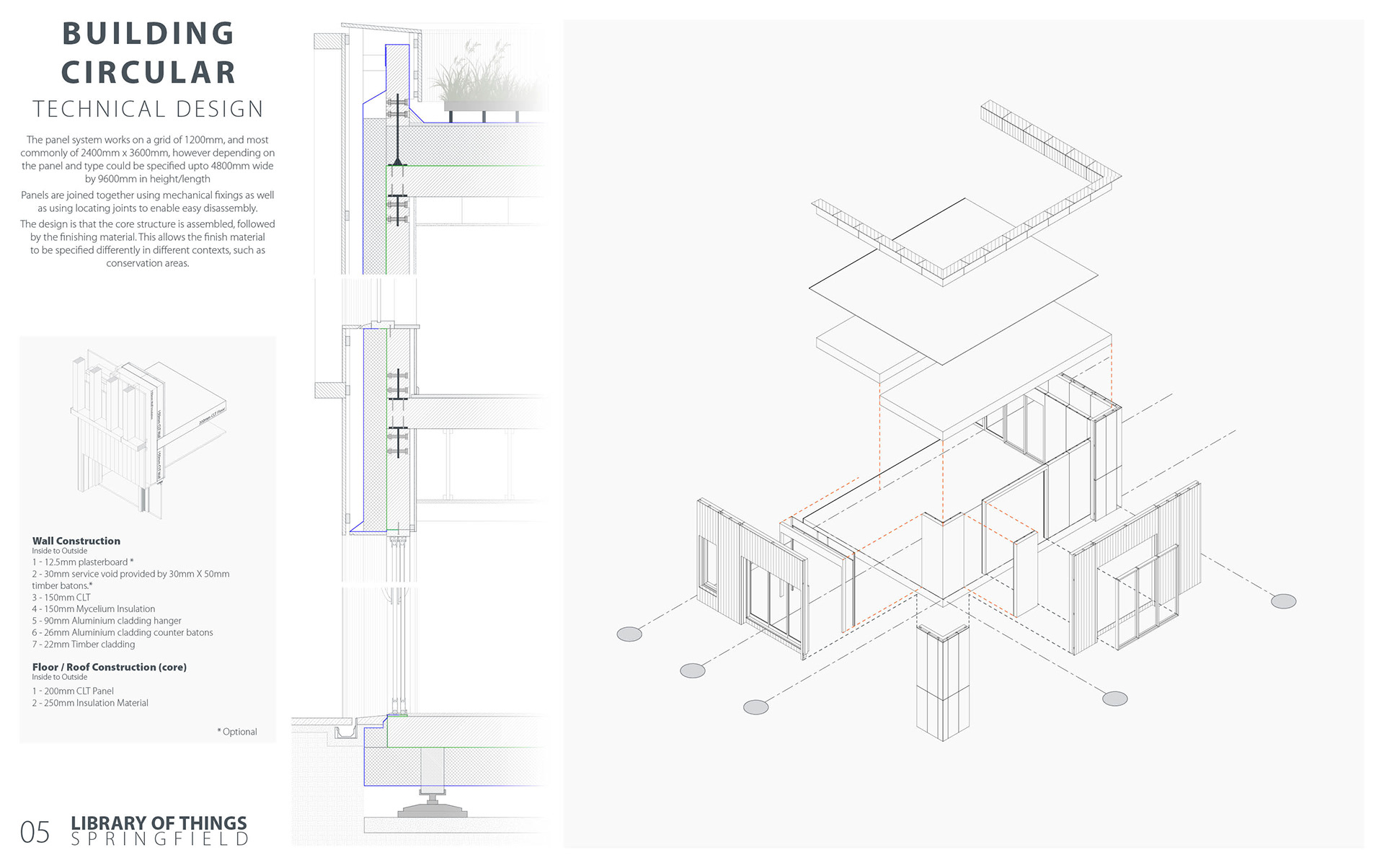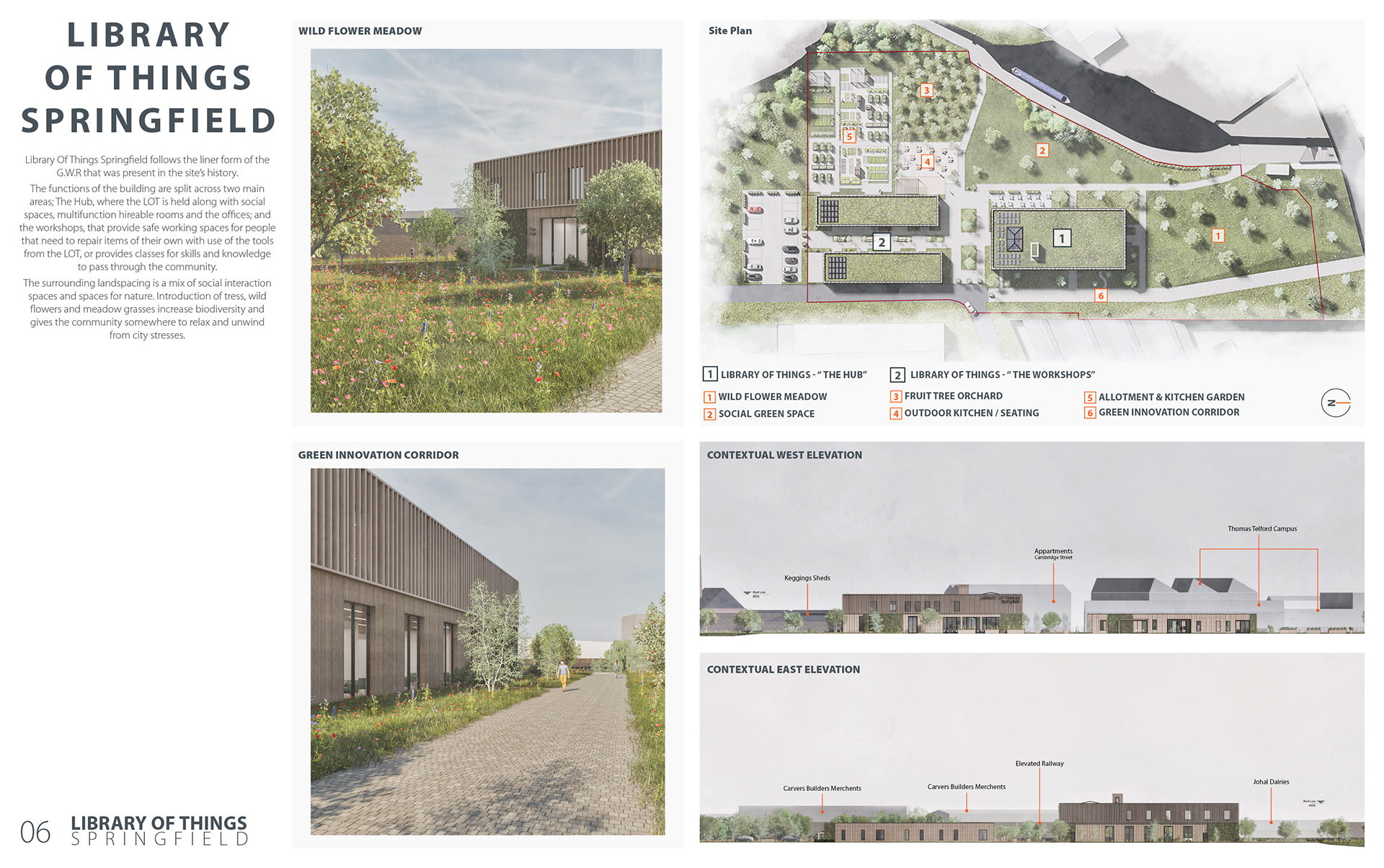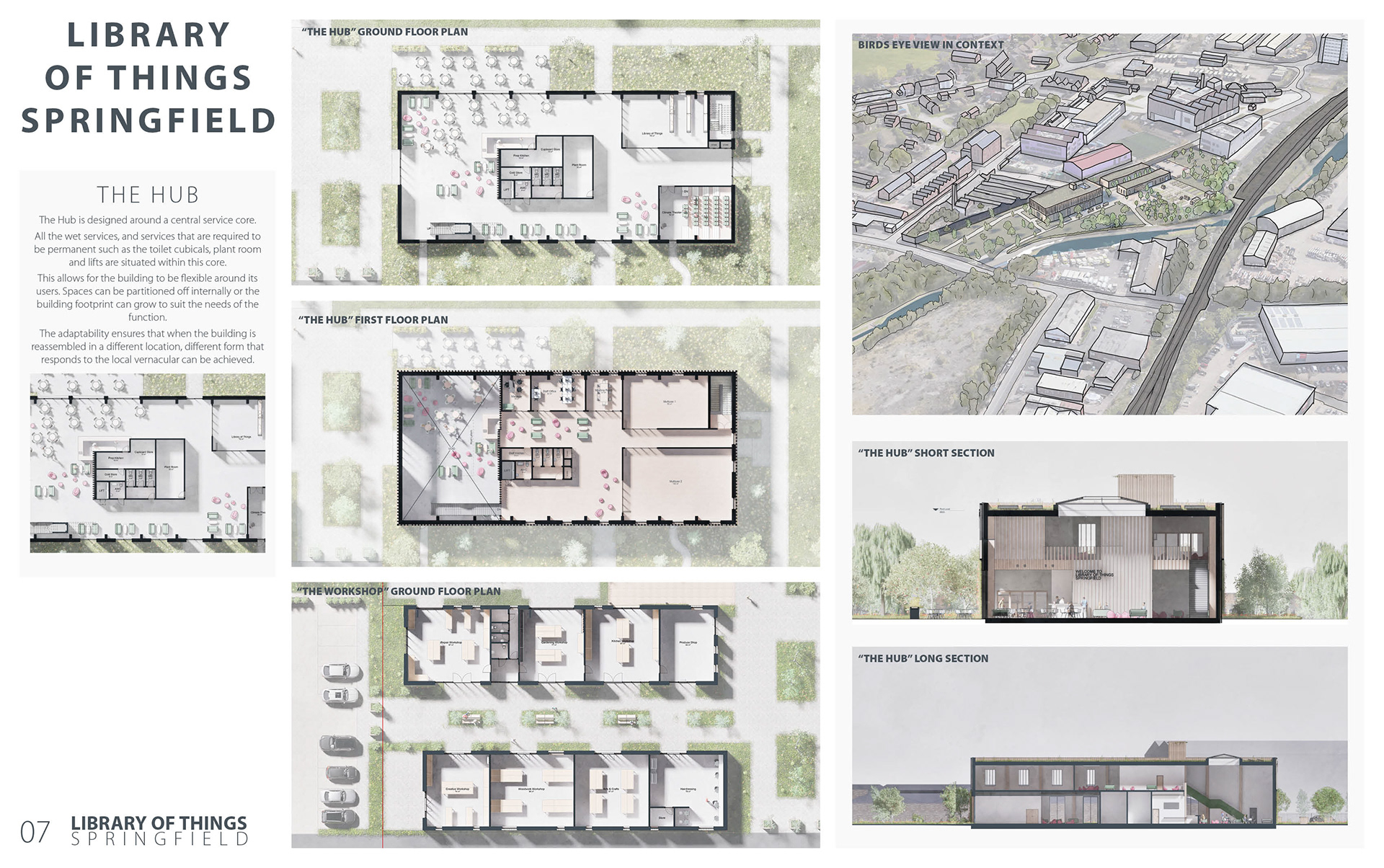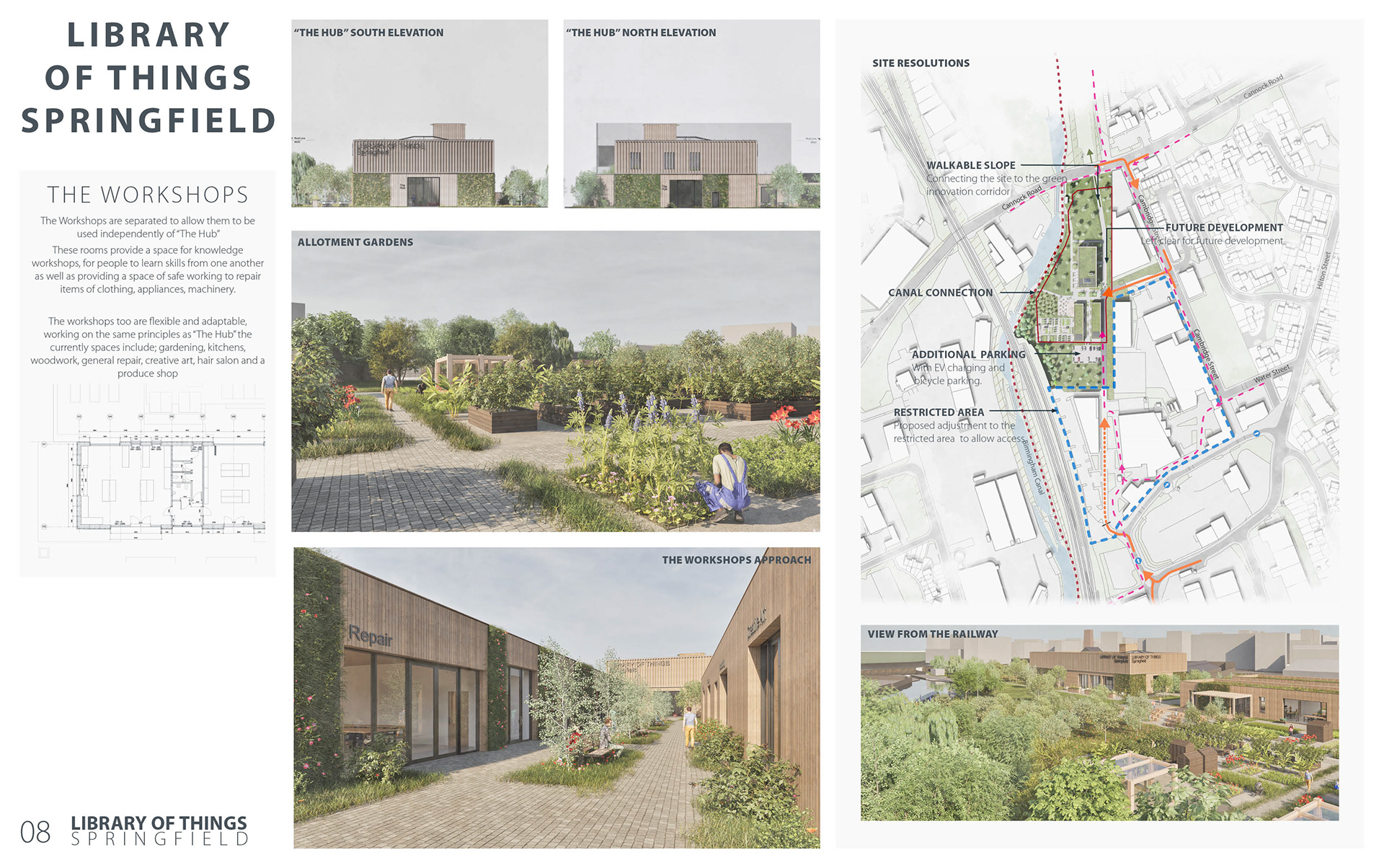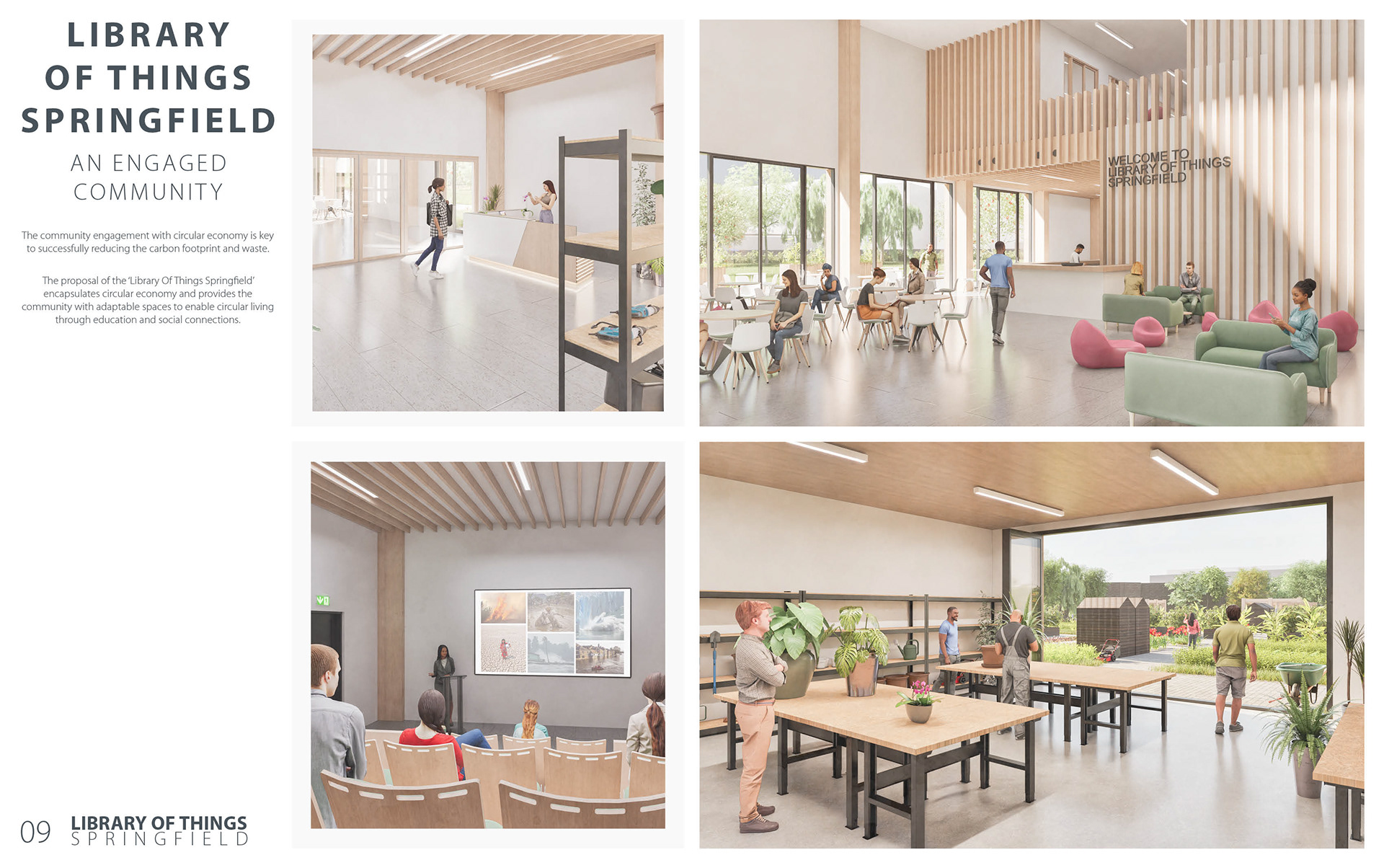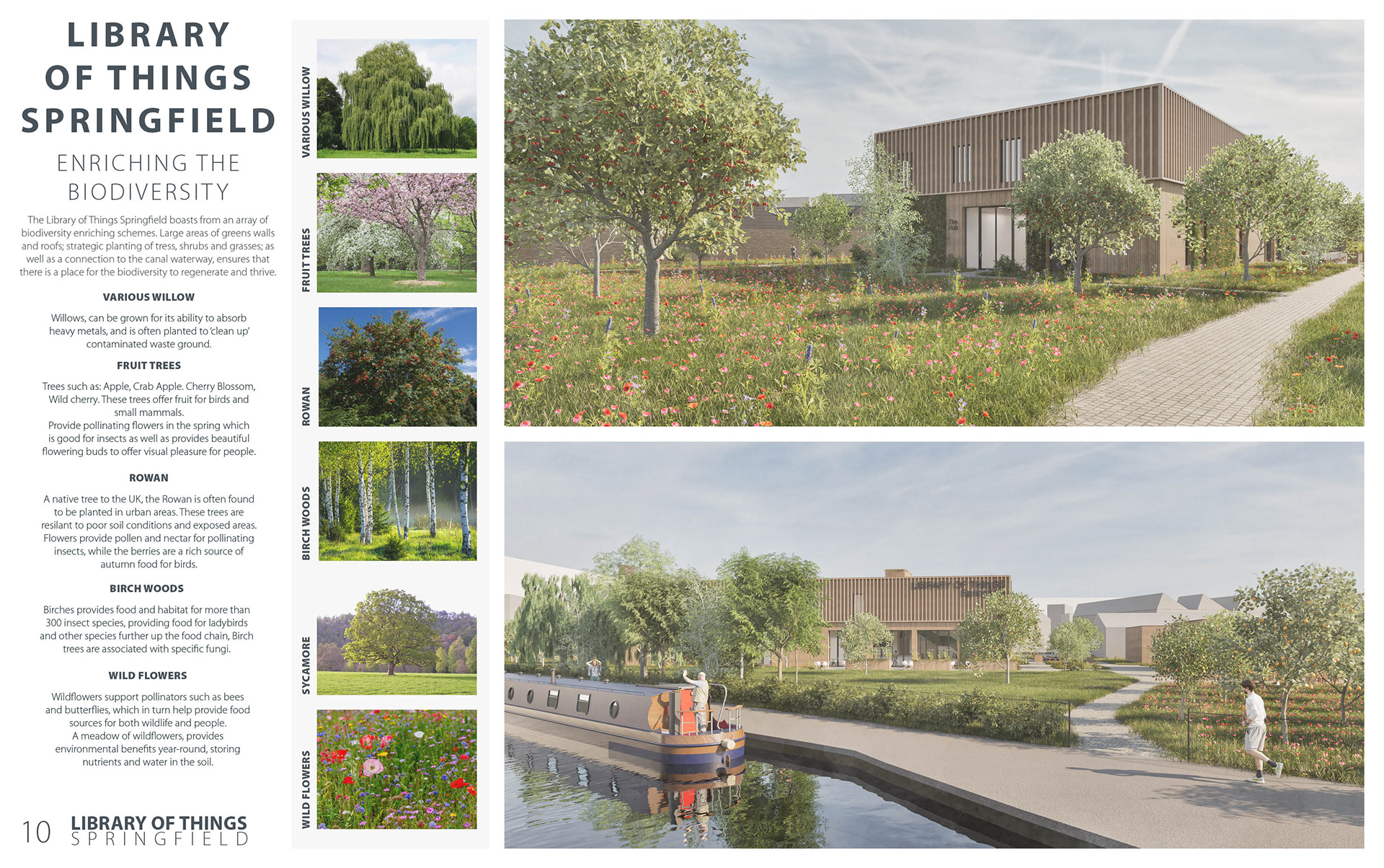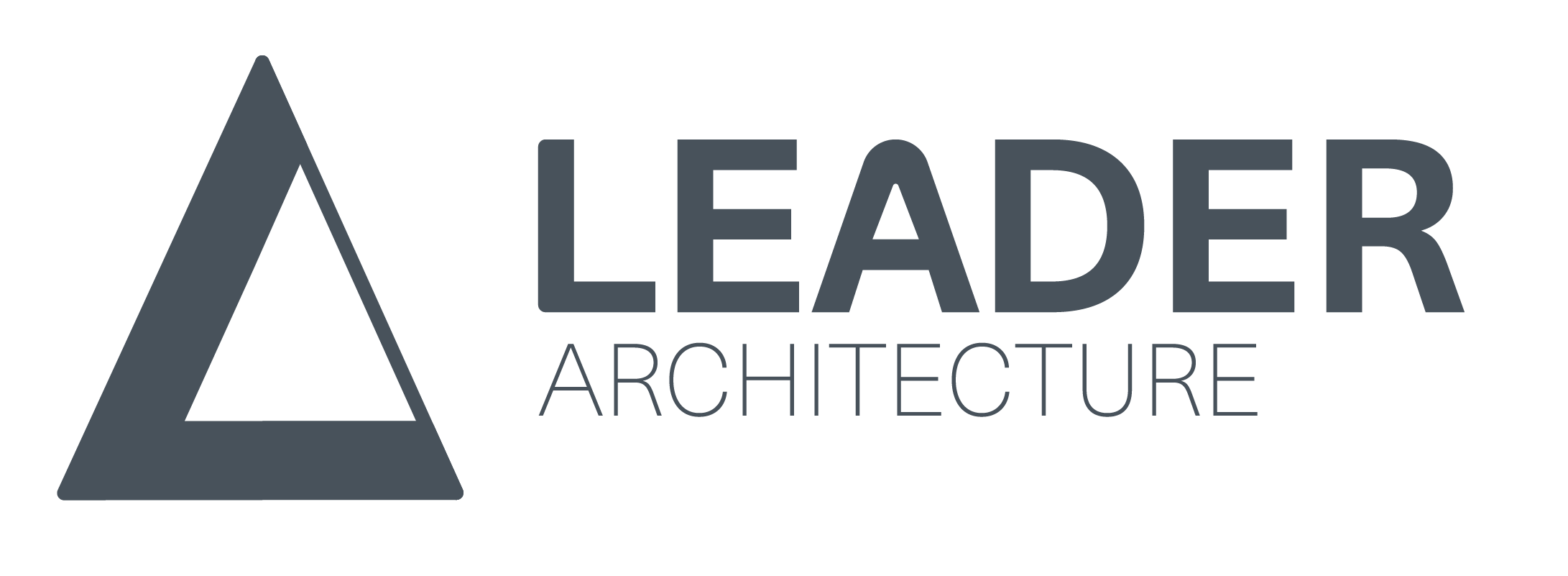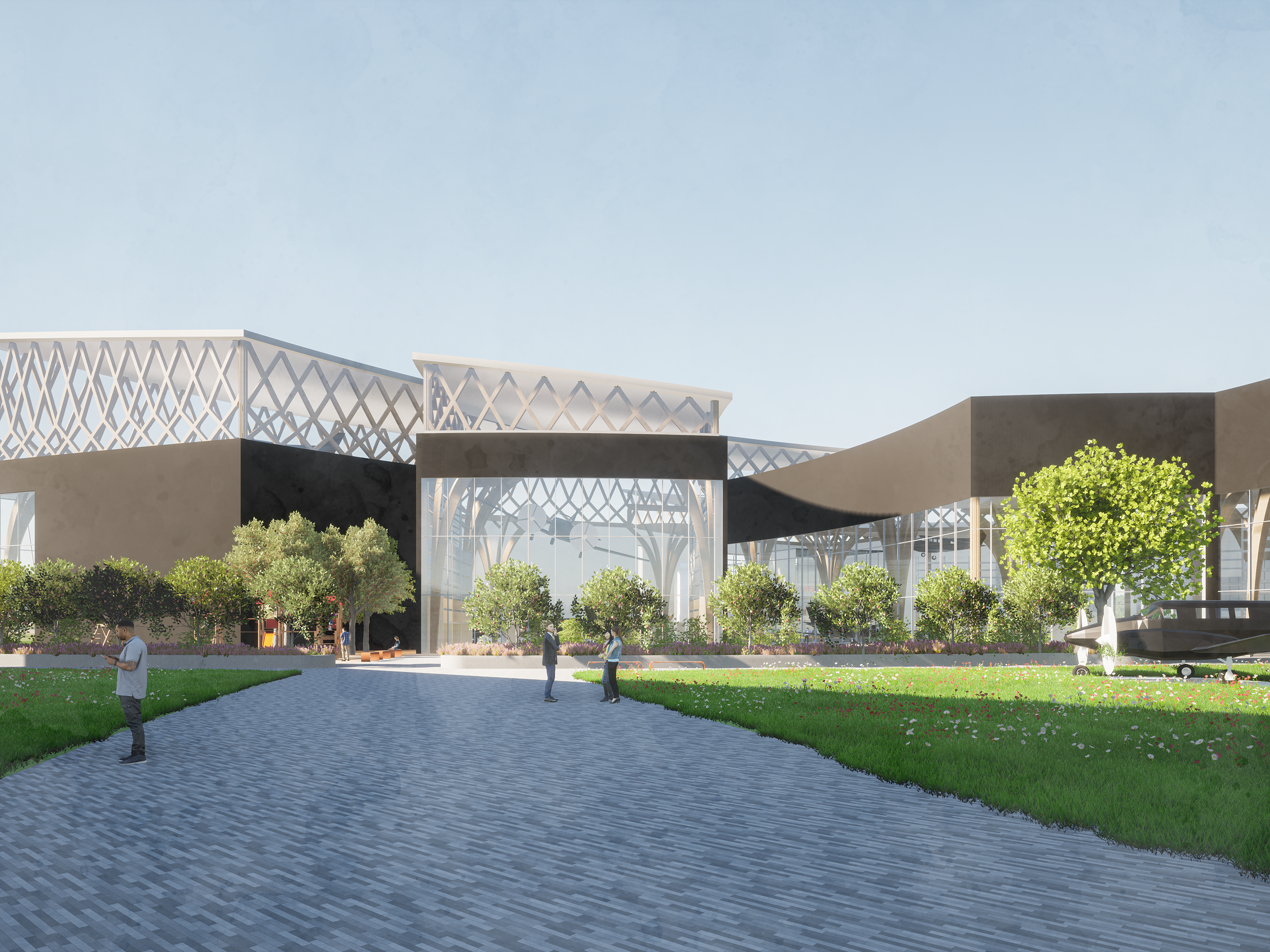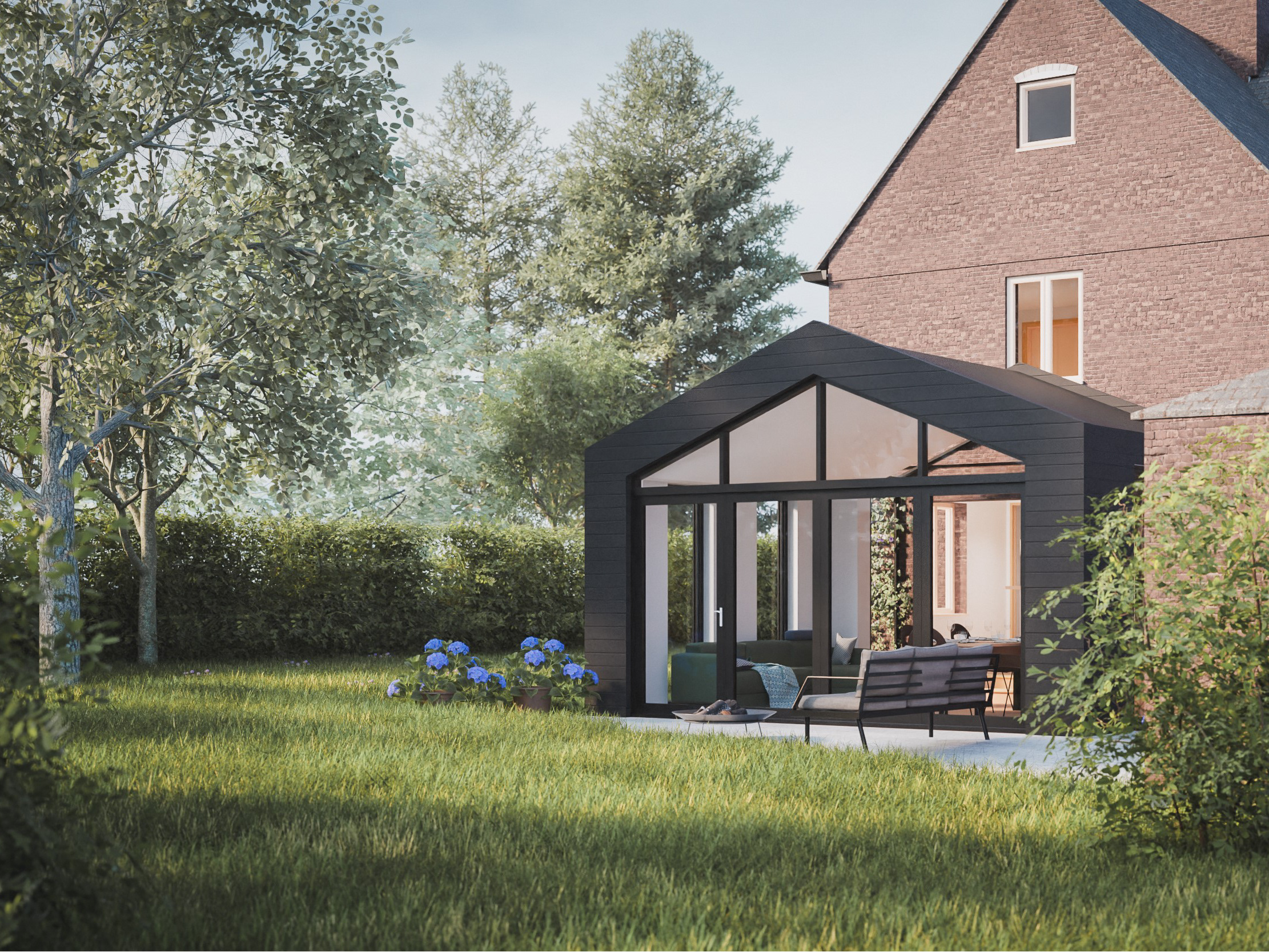Library of Things – Springfield is a sustainable architectural project that reimagines community spaces through circular economy principles.
Designed as a flexible, modular system, the building can adapt to evolving needs while minimizing environmental impact. Located in Wolverhampton’s Springfield district, the project integrates green infrastructure, repurposed materials, and energy-efficient strategies to create a hub for shared resources, education, and local enterprise. Inspired by biophilic design and industrial heritage, the scheme fosters community engagement through workshops, repair spaces, and social areas—demonstrating how architecture can drive sustainability and circularity in urban environments.
The project facilitates community-run activities and small business opportunities while promoting circular living practices. Through workshop spaces, community members can engage in peer-to-peer learning and repair items that would otherwise end up as waste. The project’s classrooms provide venues for community groups and organizations to conduct educational programs or offer safe social spaces. At its heart, the initiative aims to foster inclusivity, create opportunities, and build a more sustainable, connected community.
The innovative prefabricated panel system is designed for flexibility and sustainability. The modular components are engineered to seamlessly connect, allowing for efficient assembly while maintaining the potential for future disassembly and reconfiguration to meet evolving needs. This adaptable design approach is complemented by a carefully selected palette of sustainable materials. The concrete free design utilises CLT panels, LVL beams and columns, eco-friendly mycelium insulation, and natural timber cladding. The structure is crowned with a green infrastructure (a green roof, Rain water harvesting, and Swails), further emphasizing the project’s commitment to environmental responsibility and biophilic design principles.
Winner of RIBA West Midlands Student Award - Outstanding Student in the Final Year (Part I)
Winner of Wolverhampton University SoABE - Best Final Year Project (Architecture)
Nomination for RIBA Bronze Medal award
